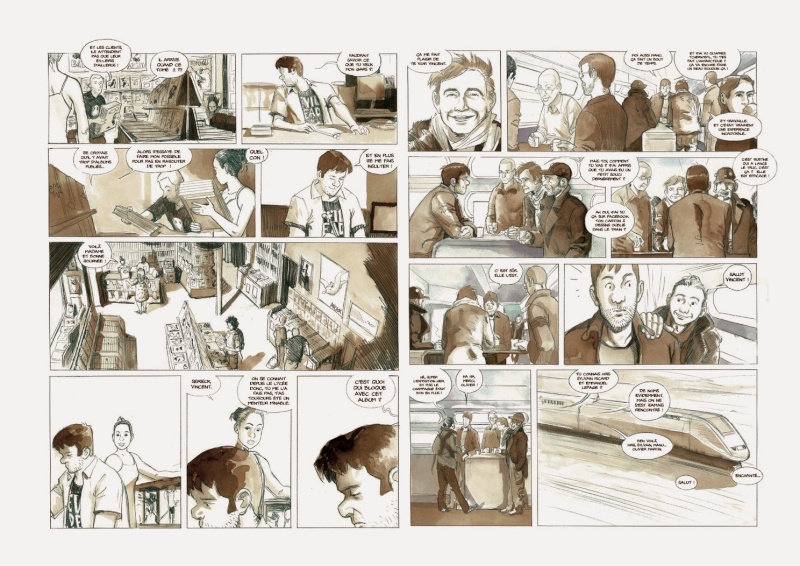


Runberg evolves this into a finely paced action thriller based on constant danger rather than any great mystery about who’s behind the villainy. The issue eventually becomes the Swedish secret service’s new data centre, the information it holds desired by both Lisbeth and her allies, and a frightening group of far right activists. She’s convincing with the motorcycle that proves so valuable, but obviously doesn’t enjoy drawing cars, or hands for that matter. The weakness of Ortega’s art can be technology. That cast don’t have a pleasant ride, and Ortega’s strong emotional depiction accentuates their suffering, a situation that doesn’t appear to have any escape route.

She exemplifies the European approach of valuing background detail, and by doing so convincing that the cast live in a recognisable world. In Bélen Ortega Titan have unearthed another superb artist for Lisbeth’s activities. Blomqvist is investigating a populist right wing politician, while Lisbeth’s hacking activities have attracted the attention of the Swedish secret service, and she believes they’ve abducted one of her colleagues. He reflects the real world political tensions across Europe, where right wing parties exploit fears of immigrants to promote their agendas, and throws in other contemporary bogeymen like a thinly disguised version of pick-up artist Julian Blanc. Rundberg has a head start by having his lead characters defined for him in Larsson’s novels, but not every writer would be as capable of producing an original plot that reflects Larsson’s writing so well, and Runberg sucks in the informed reader right away. Talented hacker Lisbeth Salander and journalist Mikeal Blomqvist therefore return at a time of increasing social tension in Sweden. Sylvain Runberg’s adaptations of Steig Larsson’s Millennium trilogy were so proficiently paced for graphic novels by a writer with his own good track record, so it seems only natural that he apply his talent to the creation of an original piece.


 0 kommentar(er)
0 kommentar(er)
